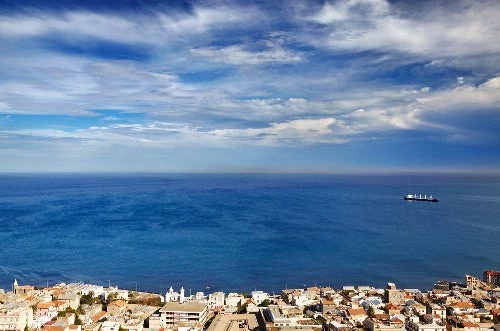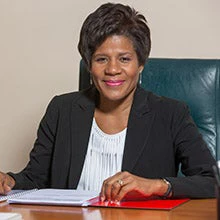 Every organization, no matter how large, needs to pause occasionally and take a good, hard look at itself. It is vital for measuring the gap between intention and achievement, and charting a new course. For the World Bank Group (WBG), this “hard look” took the form of a gathering for three days in Marrakech, Morocco where we listened to voices from the ground, debated and reached consensus on an action plan for a renewed path for the Maghreb Team (i
ncludes Algeria, Libya, Morocco and Tunisia). This was the objective of a retreat that gathered the WBG Maghreb team under the slogan “
Think regional, act local.” It was motivated by the conviction that keeping up with a changing environment is essential for ensuring that both development strategies and projects’ design are in line with local development priorities.
Every organization, no matter how large, needs to pause occasionally and take a good, hard look at itself. It is vital for measuring the gap between intention and achievement, and charting a new course. For the World Bank Group (WBG), this “hard look” took the form of a gathering for three days in Marrakech, Morocco where we listened to voices from the ground, debated and reached consensus on an action plan for a renewed path for the Maghreb Team (i
ncludes Algeria, Libya, Morocco and Tunisia). This was the objective of a retreat that gathered the WBG Maghreb team under the slogan “
Think regional, act local.” It was motivated by the conviction that keeping up with a changing environment is essential for ensuring that both development strategies and projects’ design are in line with local development priorities.
In order to set the stage, a series of voices from the region shared a necessary reminder that development happens within a political environment. Tunisian economist, Hachemi Alaya warned against interventions that inadvertently help maintain the status quo or embedded institutional behaviors tied to the past. Instead, he urged the audience to focus on transformative projects that could help prepare for the future, such as infrastructure investments to promote regional integration. Abdelkrim Boudra from Algeria emphasized the importance of engaging with civil society, as a critical means for inclusive growth and stability. While Moroccan human rights activist, Fouad Abdelmoumni underlined the important role Bank knowledge could play, in contributing to fostering national debates from which local reforms will emerge. “ Ideas and intellectual courage,” he said, “ will be more important than money.”
The subsequent two days focused on developing work programs to address pressing challenges while integrating these external views.
The region presents immense diversity that argues for a tailored approach to each specific political country context. However, at the top of the development agenda are a number of common challenges which call for an overarching strategy that draws on the full range of Bank expertise. These include youth unemployment, underdeveloped or ‘lagging’ regions and poor public services.
Another preeminent regional challenge is the breakdown of public trust between citizens and governments, which was one of the primary drivers of the Arab spring. Governance and accountability are at the center of this equation. Rebuilding the trust will require a combination of improved social services, especially in lagging regions, more government transparency along with ways for citizens to hold governments accountable, and a levelling of the economic playing field.
Then comes the growth dimension. As with rebuilding trust, increasing economic growth requires a combination of several factors. Educational reform is one of those, so that young people acquire the skills demanded by a competitive job market. Reforms to the business environment will also be crucial to encourage foreign and domestic investment and the emergence of a strong private sector. But because these reforms boil down to impact on humans, an urgent action is needed to create much needed jobs and improve people’s living conditions.
Regional integration was also identified as a means for both promoting growth and creating the kind of inter-dependence among countries that will lay the foundation for future stability. As one of the least integrated regions in the world, there is immense potential for increased regional trade within the Maghreb as well as with Sub-Saharan Africa. While political obstacles are high, the potential inherent in regional integration calls for a steady commitment – and a reminder that the formation of the world’s most integrated region, the European Union, was the result of an arduous and long process.
Identifying these key challenges and developing the right WBG approach to them triggered a number of discussions and debates leading to this conclusion: the need to work on responses that integrate the full range of Bank knowledge and expertise in actions that better target the region’s most pressing priorities
World Bank Group’s knowledge will be an essential driver of the Maghreb team’s roadmap. It will be deployed to help countries in the region diagnose and analyze their respective obstacles to growth and the actions needed to overcome them. Project design must be done through an enhanced collaboration across the different units of the WBG. Results on the ground and beneficiaries’ satisfaction will be our main reward.
The retreat wrapped up with the overarching consensus that listening to a broad range of local voices was critical, no matter how uncomfortable the messages. It is vital for understanding the environment and designing appropriate interventions that deliver better outcomes.
We agreed to get moving (no action is not an option) and then meet in a couple of years to assess whether the things we are doing differently have indeed made the definitive move to “think regional, act local”.


Join the Conversation